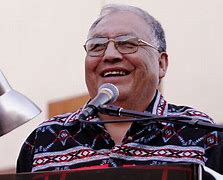Chief Dull Knife College receives one million – No strings attached
Dr. Richard Littlebear, President, Chief Dull Knife College (CDKC) on the Northern Cheyenne Reservation, MT still doesn’t know exactly why his tribal college was selected as one of six in the western area to receive one million dollars from philanthropist” Mackenzie Scott. Scott, reported to be the 4th richest woman in the United States recently gifted over 4 billion dollars to non-profit institutions which were thoroughly “vetted” and recommended by her staff, Littlebear said.
Other western tribal colleges which received one million apiece are: Salish-Kootenai College, Flathead Reservation, MT; Blackfeet Tribal College, Blackfeet Reservation.MT; Turtle Mountain Tribal College, Turtle Mountain Reservation, North Dakota; Navajo Technical University, Navajo Reservation, Arizona and Institute of American Indian Arts, Santa Fe, New Mexico. All total, 6,000 organizations in the U.S. were gifted, in varying amounts.
These institutions were carefully researched for some time before the award was publicly announced. Littlebear and other college presidents sworn to secrecy until then. “When I asked why we received one of the awards, the representatives simply said that we were doing a ‘good job’.
“It’s absolutely astonishing,” Littlebear continued. “There are no strings attached other than a three-year period to spend or obligate it. That’s almost unheard of and will present a planning and prioritizations challenge.”
Littlebear likes to think that one reason the award was given is because under his 20-year tenure as President, the college has focused on being a good steward of the funding it receives. Leslie Evertz, tribal member and Chief Financial Officer, often called Dr. Littlebears ‘right hand’, has been with the college for that same amount of time and concurs. “It is an honor to receive this funding and have our efforts and work on behalf of education recognized and rewarded. This gift will allow us to expand our educational services and work with the community.”
Evertz also credited Dr. Littlebear in other ways. “When we first started, there were times when making payroll was tough, but over the years we have become very stable and grown considerably”.
Littlebear has an Ed.D. in Education from Boston University and Evertz has an MBA. Prior to CDKC each worked in the private sector and with other tribal groups.
“Our staff is so excited, astounded and amazed.” Littlebear said. “There already many ideas and suggestions for use of the funds, but we are going to be very deliberative about planning and hopefully this gift will benefit the college, faculty and students for many years to come.”
With that in mind, when the spring semester starts on January 25, the faculty, students and Board of Trustees will have the opportunity to make requests and recommendations to assist in formulating an overall plan for use of the funds. Due to COVID, the college has implemented thorough health and safety measures and trained faculty to conduct effective long-distance learning via computer. Yet, as Littlebear explained due to limited internet services on the reservation, students have strongly expressed the desire to return to a normal “face-to-face” classroom learning environment. “We are going to do everything possible to make that happen” he said.
Littlebear himself has several thoughts including scholarship programs, an emergency fund to assist low-income students; improved internet access for learning; raises for faculty who have normally been lucky to get a 2-3% COLA provided by federal funding and shoring up the CDKC Foundation. “We have a very dedicated faculty who could make more money elsewhere,” he said, “but they are dedicated to CDKC.” The current faculty is a mix of non-Indians and tribal members, but the support staff are nearly all tribal members.” But he humbly says that he is only one voice and the final plan will represent the best options though consensus building.
CDKC has a nearly forty- year history as a successful institution of higher learning. First established as a vocational school in the 1970’s it was an Indian Action Program (IAP) facility providing vocational training enabling many tribal members to learn the skills necessary for employment at the Colstrip power complex. However, in 1979, it was formally chartered as a tribal community college by the Tribal Council, providing autonomy from the tribal government structure. Fully accredited by the Northwest Accreditation Committee on which Littlebear serves, students can easily transfer all credits to other colleges.
The college averages 300 students per semester, even the summer session when many area teachers seek continuing education credits. Also, a significant number of students are non-Cheyenne, many traveling from Colstrip, Forsyth, neighboring white communities and even the Crow Reservation.
The college operates under the policy advice and recommendations of a reservation-wide and publicly elected Board of Directors, who will also be providing input as part of their role as advisors and policymakers. The current Board includes Jenny Parker, Chair (Ashland); Florence Running Wolf (Birney); Roseanne Headswift (Lame Deer); Jackie Tang (Busby); Sidney Fox (Ashland) and Barbara Clubfoot (Muddy).
Former Tribal Vice-President, Winfield Russell also served many terms on the CDKC Board of Directors, a staunch college supported and close friend of Dr. Littlebear. “I wish he was here today,” the college president concluded nostalgically. “He would have many good ideas, especially for our work with language retention and the elders. And, our former Tribal President Rynalea Whiteman Pena, now a State Legislator also served on the Board and will continue to be a good supporter,”
(Clara Caufield can be reached at acheyennevoice@gmail.com)
The post Chief Dull Knife College receives one million – No strings attached first appeared on Native Sun News Today.

